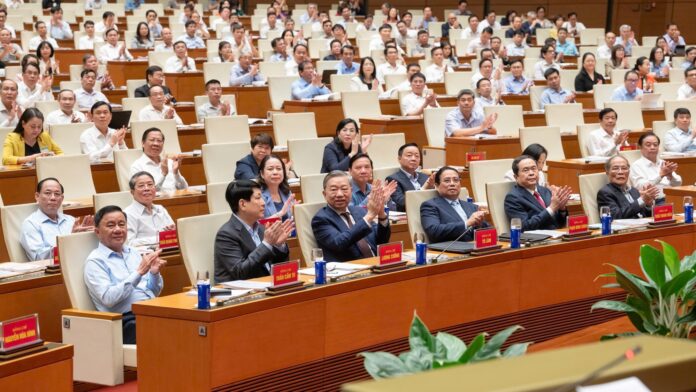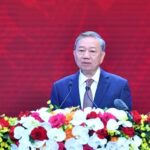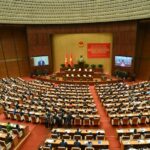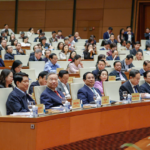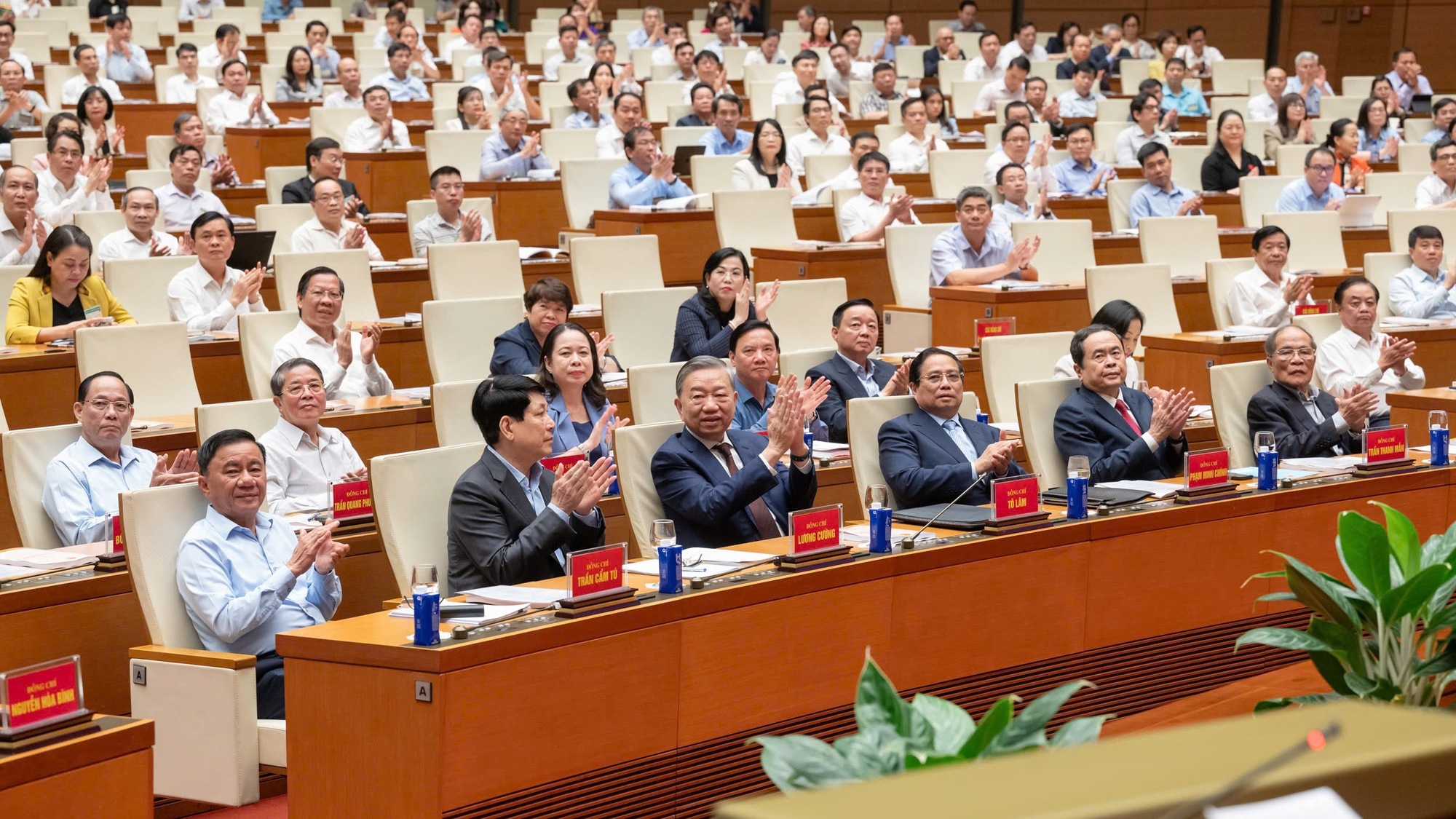
Party and State leaders attend the National Conference on the promulgation and implementation of the Resolution of the 11th Central Committee of the Communist Party of Vietnam – Illustrative image
|
The conference was held in a hybrid format, connecting the main venue at the National Assembly to other venues of ministries, sectors, localities, agencies, and units nationwide. It was attended by Party and State leaders and heads of central and local ministries and sectors.
Before the official program began, delegates at the main venue visited exhibitions on “Achievements in Law Building and Enforcement” and “Achievements in Private Economic Development,” along with booths showcasing typical products of private enterprises.
At the conference, Prime Minister Pham Minh Chinh presented a topic on the key and core contents of Resolution No. 68-NQ/TW, dated May 4, 2025, of the Politburo on private economic development and the plan for its implementation. National Assembly Chairman Tran Thanh Man presented a topic related to Resolution No. 66-NQ/TW, dated April 30, 2025, of the Politburo on innovation in law building and enforcement, along with the plan for implementing this resolution.
General Secretary To Lam delivered an important speech to direct the conference. After that, Head of the Central Committee’s Commission for Communication and Education and Head of the Central Committee’s Commission for Mass Mobilization Nguyen Trong Nghia received the General Secretary’s directions and guided the promulgation, propaganda, and implementation of the two resolutions.
|
Resolution No. 66-NQ/TW: Towards a Modern, Democratic, and Transparent Legal System Resolution No. 66-NQ/TW sets the goal that by 2030, Vietnam will have a democratic, fair, synchronous, unified, public, transparent, and feasible legal system. The organizational implementation mechanism must be strict and consistent, providing a legal basis for the smooth operation of state agencies after the organization of the apparatus, while removing obstacles arising from practice, creating conditions for development, and mobilizing the participation of people and businesses in socio-economic development. The goal is for Vietnam to become an industrialized country with modern industry and upper-middle income by 2030. The implementation roadmap includes: by 2025, basically removing “bottlenecks” caused by legal regulations; by 2027, completing the amendment, supplement, and promulgation of legal documents suitable for the three-tier government model; and by 2028, perfecting the investment and business legal system, bringing Vietnam’s investment environment to the top three in ASEAN. The vision for 2045 is for Vietnam to have a high-quality, modern legal system, approaching international standards, and suitable for reality. The law will be strictly enforced, contributing to building a modern, streamlined, effective, and efficient law-governed socialist state, towards becoming a developed, high-income country. Resolution No. 68-NQ/TW: Private Sector as the Most Important Driving Force Resolution No. 68-NQ/TW identifies that by 2030, the private sector will become one of the most important driving forces of the economy. This sector will play a pioneering role in the development of science and technology, innovation, and digital transformation to realize the objectives of Resolution No. 57-NQ/TW and other guidelines and policies of the Party. Specific targets by 2030 include: 2 million operating enterprises, averaging 20 enterprises per thousand people; at least 20 large enterprises participating in the global value chain; the private sector achieving an average growth rate of 10-12% per year, higher than the overall economic growth rate; contributing 55-58% of GDP and 35-40% of the total state budget revenue; creating jobs for 84-85% of the working-age population. Private sector labor productivity increases by an average of 8.5-9.5% per year. In terms of technological capacity and innovation, the private sector in Vietnam aims to be in the top three in ASEAN and the top five in Asia. The vision for 2045 is for Vietnam’s private sector to develop rapidly, strongly, sustainably, and competitively in the region and internationally, proactively participating in the global production and supply chain. The goal by 2045 is to have at least 3 million operating enterprises, contributing over 60% of GDP. |
– 05:28 05/18/2025
“Revolutionizing Governance for a Soaring Nation”
“General Secretary To Lam penned an article titled, ‘Breaking Through with Institutions and Laws for a Nation’s Ascension’. He emphasizes that superior institutions and laws, aligned with the developmental needs and aspirations of the people, are paramount to a nation’s success. Thus, to propel our country forward, we must vehemently reject any limitations or shortcomings within our institutions and laws. We cannot compromise with any weaknesses in policy design, legislation drafting, or implementation. The Government Portal is honored to present the entirety of Comrade General Secretary’s insightful article.”
The Power of 1.3 Million: A Nation-Wide Conference to Internalize and Review the Party’s Resolutions
This morning, the Politburo and the Secretariat held a national conference to promulgate and deploy the implementation of Resolution No. 18-NQ/TW of the 12th Central Executive Committee; review the socio-economic situation in 2024, and discuss solutions to accelerate socio-economic development in 2025, including addressing institutional bottlenecks and constraints.
The Prime Minister and the Secretariat Announce Key Personnel Decisions
The Gia Lai Provincial Party Committee organized a conference to announce the decisions of the Prime Minister and the Secretariat of the Party Central Committee on the approval and endorsement of the provincial leadership personnel.

